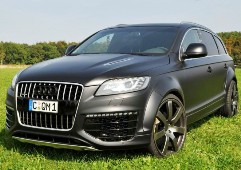 Ever wondered why swanky cars like BMW, Audi or Alfa Romeo are the most preferred models?
Ever wondered why swanky cars like BMW, Audi or Alfa Romeo are the most preferred models?
Well, a new research has claimed it's their unique shape not the sophisticated technology that makes them more attractive.
Human instincts draw us to either curvy models or those with sharp angles, and car makers cater to one or the other, depending on the era, the study has found.
Consumers' car preferences come down to two basic human habits, said study researcher Claus-Christian Carbon of the University of Bamberg in Germany.
One, we are predisposed to shy away from sharp objects because they tend to hurt and angular features remind us, at least subconsciously, of fangs, claws, thorns and knives.
As a result, evolutionary psychologists say, we usually prefer curves -- not only on women and in nature, but also in fashion and design, LiveScience reported.
But this predilection for gentle lines can be overcome by the second habit: looking out for new stuff.
"We tend to glaze over when surrounded by the familiar and yet jerk to attention when, say, a tiger asks to shake our hand. And our preference for novelty can sometimes make sharp angles appealing," Carbon said.
Car designers, perhaps unwittingly, have been playing one tendency off the other, suggested the research published in the latest issue of the journal Acta Psychologica. After asking study participants to rate the curviness of car models from 1950 to 1999, Carbon found that curvier cars were popular during certain eras, while angular autos were preferred in intervening years.
The finding showcased the push and pull between rounded shapes, which are over-represented in nature, and angles, which are both more novel and potentially threatening, Carbon told LiveScience.
The round cars of the early 50s, the study showed, were slowly supplanted by sharper designs -- think shark fin exhaust tips and the winged 1960 Cadillac.
Boxy styles stayed trendy in the United States through the 1980s.
And then a slow transition back to smooth shapes began, epitomised by the new Volkswagen Beetle in the 90s, which, Carbon said, 'looks like a half circle.'
Since then, the cycle has been speeding up. It used to take roughly 50 years for car models to swing between circles and boxes.
Now it is more like 20 years, Carbon said, predicting an increase in sharply angled cars in the 2010s.









 © 2025 Rediff.com -
© 2025 Rediff.com -